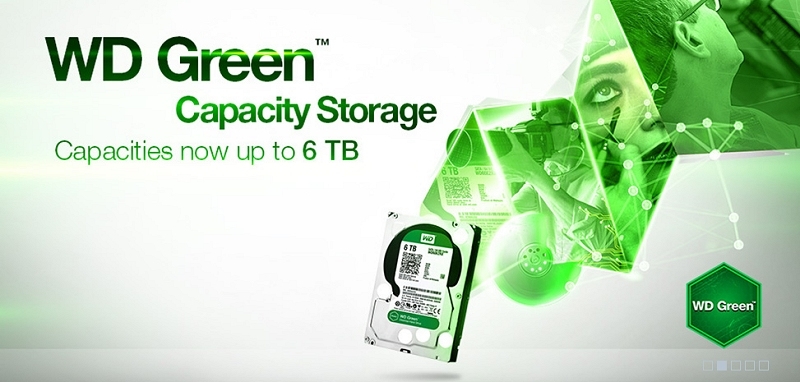
Look no further than a solid state drive for breakneck speed. If a large-capacity drive for storage is what you're after, however, traditional spinning hard drives are still the best bet in terms of price per GB. And if you need a whole heck of a lot of storage, Western Digital's two new budget-minded drives might be right up your alley.
The Western Digital Green line of cool and quiet hard drives now has a couple of new additions, a 5TB drive and a 6TB drive. These consumer-oriented 3.5-inch drives both offer 64MB of cache and use WD's IntelliPower technology to reduce rotational speed when the drive isn't being heavily used to conserve energy.
According to documentation from WD, the 6TB and the 5TB are the two fastest models in the entire Green line with sustained data write speeds of up to 175MB/sec and 170MB/sec, respectively. The next fastest drive in the line is the 4TB model at 150MB/sec.
Of course, the increased speed also comes at a cost: higher energy consumption. We're nitpicking here but the two new drives consume 5.3 watts under read / write scenarios and 0.4 watts in standby / sleep mode compared to just 4.1 watts under load on the 3TB model.
Unfortunately, Western Digital hasn't revealed pricing or availability on either of the new Green drives. I've reached out to marketing for clarification and will update this post when I hear something back.